Nobody is born financially savvy. It takes experience — and learning from your mistakes, in some cases — to figure out how to be good with money. But the whole concept of personal finance can be a scary one, especially if you don’t know your 401(k) from your IRA.
Luckily, it’s never too late to take control of your finances and give yourself a more secure future. Start with these 13 dos and don’ts — they’ll last you a lifetime.
Pay Off Your Credit Card Every Month
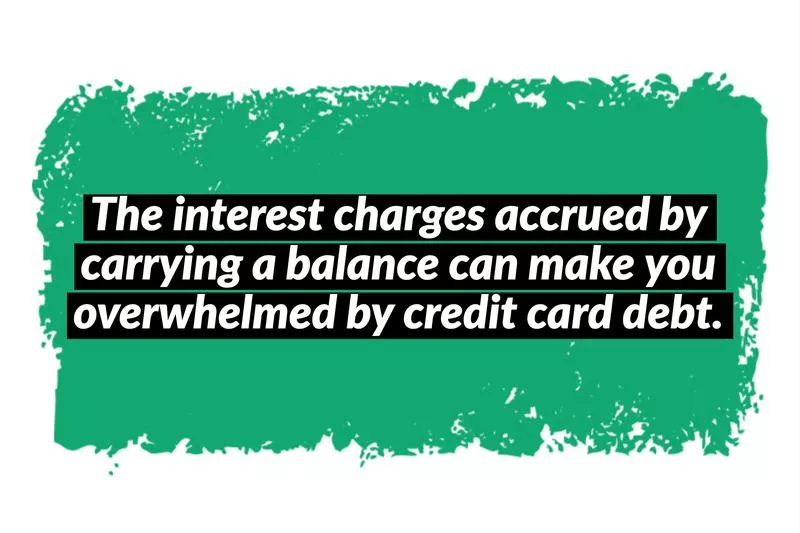
Credit cards can get a bad rep, but if you manage them the right way, they can actually improve your credit score — and let you pay for those big-ticket items you don’t have the budget for otherwise. Credit industry analyst at Money Tips Nathan Grant recommends paying your statement balance in full and on time every billing cycle.
“It’s actually the interest charges accrued by carrying a balance that can make you overwhelmed by credit card debt,” he said. “Keeping your balances paid down on time will help build good credit scores.”
A cash-back credit card on purchases you make regularly, like gas or groceries, will actually earn you money, because you get money back if you pay your credit card off by the due date.
Always Live Below Your Means
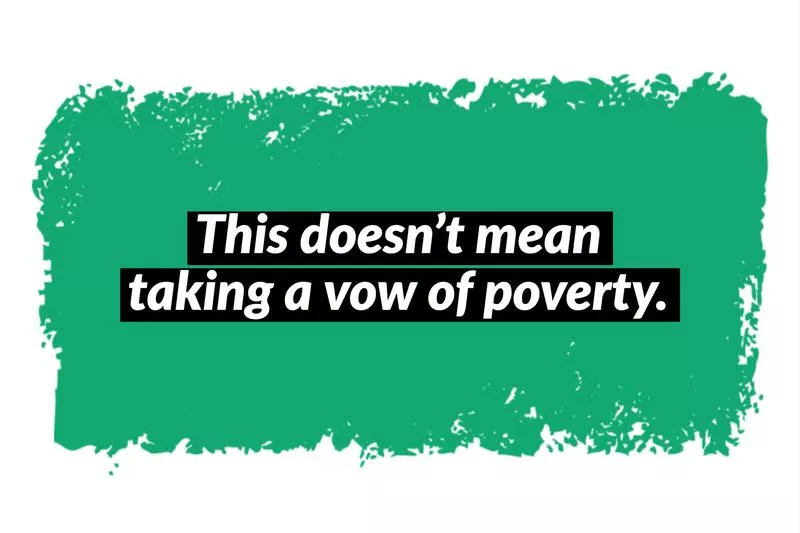
According to performance coach and former clinical psychologist Dr. Julie Gurner, it’s the major life decisions you make that determine how much financial stress you’ll be under. “I advise even my high net worth clients to live below their means, which sets them up for an easy life ahead and far less stress,” she said.
This doesn’t mean taking a vow of poverty, but it does mean considering your quality of life in the long term, rather than simply living in the moment. For example, the type of home you buy can lock you into an expense that might be at the top of your limit now, but end up being a burden if your business fluctuates. “By getting a fantastic home that isn’t a reach at your peak, you can set yourself up for a comfortable life long-term,” said Gurner. “Decisions like this around homes, cars, clothing and spending can make all the difference.”
“The truth is that few items are necessities and status is perception, not reality,” said
Byron Tully, author of ”The Old Money Book,” and “Old Money, New Woman: How To Manage Your Money and Your Life.” “To give yourself the best shot at financial health — if not financial independence or wealth — simply earn more than you spend on a consistent basis. It’s simple, but challenging to do in a consumer society.”
Another upside to this approach: When your financial burdens are lessened, you have more scope to take risks in your career, because you don’t need an excessive income to maintain your lifestyle.
Don’t Apply for Multiple Credit Cards at Once

You might think that applying for multiple credit cards at once can increase your chances of getting approved by at least one, but this is a mistake, says Hanna Horvath, personal finance reporter at Policygenius.
“This innocent mistake can actually hurt you, as it dings your credit score and ultimately reduce your chances of getting a new line of credit,” Horvath said. “Shop around for credit cards by taking a look at the fine print, which gives you an idea of any fees, what the perks are, and a general interest rate range so you can compare and find the right product for you.”
When you can break this rule: According to Horvath, the only time you want to apply for multiple lines of credit at once is if you’re shopping around for a different type of loan, like a car loan. “Credit bureaus recognize you’re shopping around — as long as it’s done in a given window of time — and will only mark it as a single inquiry on your score,” she said. But before you do this, talk with your lenders or a financial adviser to get specifics.
Plan for Retirement
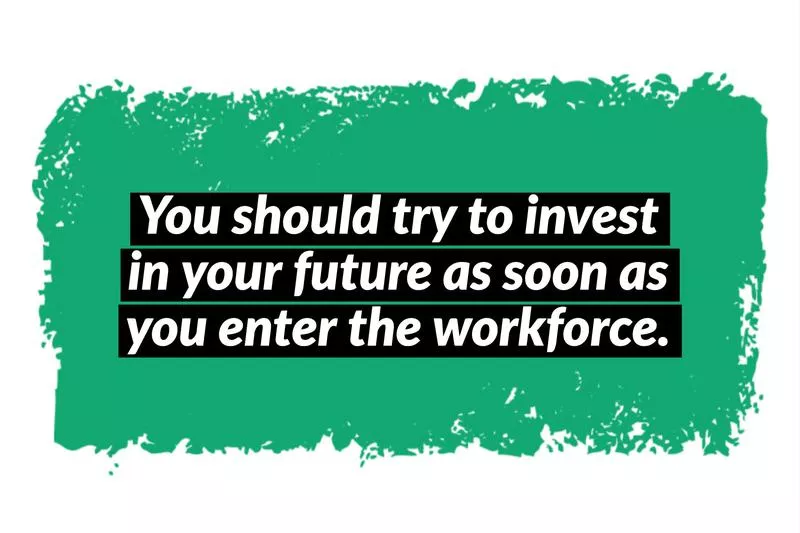
Personal finance consultant, educator and speaker Kassandra T. Dasent recommends creating a vision to help you plan for your retirement. “Nowadays, you hear more often about people who are retiring earlier than 65 years of age,” she said. “Even if you plan to work well into your golden years, you may experience a medical disability, become a caregiver to a family member or face another major life event that will force you into retirement.”
Think about how you would like to experience retirement, taking into account health care and other contingencies, and calculate how much it will cost. These simple retirement saving rules are good starting points: at 30 years old, aim for one time your annual salary in savings; at 40, aim for three times your salary; at 50 aim for six times your salary and by the time you’re 65 to 67 you should have eight to 10 times your annual salary.
No matter what your salary or income is, you should try to invest in your future as soon as you enter the workforce. “Even if retirement is not on your radar yet, it’s important to start saving for this potential milestone early because the more time you allow your money to grow, the easier it may be to pursue your goals in the future,” said Merrill Edge executive Anna Colton.
Practice Conscious Spending
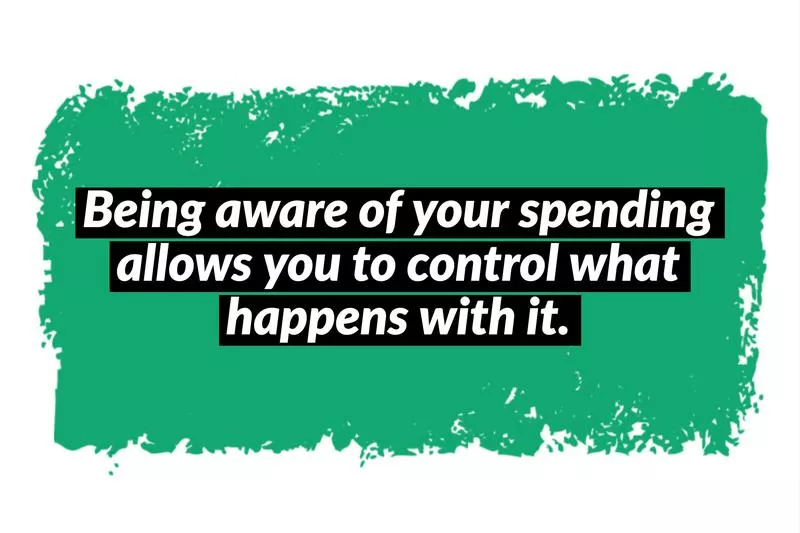
Conscious spending means questioning whether each non-essential purchase or monthly expense is going to add value to your life or make it easier, or whether it is something you will truly enjoy.
“Being aware of your spending allows you to control what happens with it,” said Dasent. “Avoiding the purchase of items or services that are not important to you allows you to consistently save and invest more of your income.”
When you can break this rule: Of course, there may be times where you want to be more spontaneous with your spending, such as when you’re on vacation, or just want to treat yourself. “You can accommodate for this by ensuring that you have the funds immediately available to cover the unplanned expenses,” said Dasent.
Take Calculated Risks
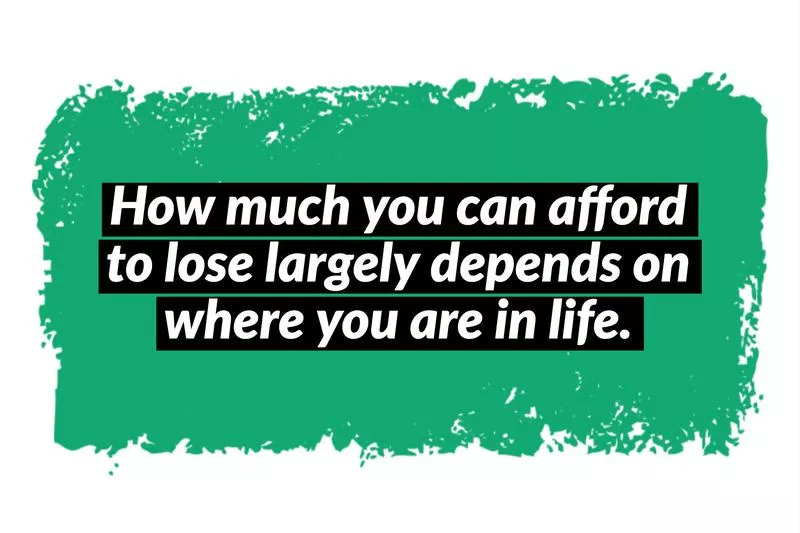
If you don’t take risks, you’ll never learn or gain anything new — and that goes double for investing. When it comes to investments, Robert Grosshandler, CEO of rebate provider and financial education platform iConsumer, recommends identifying companies that are responding to financial trends and considering companies that are accessing the capital market differently, for example through crowdfunding or cryptocurrency.
How much you can afford to lose largely depends on where you are in life. “If you’re nearing retirement, and you need the money to retire on, risky investments aren’t for you,” Grosshandler said. “But if you’re in your thirties, you have lots of time to recover from making an investment that doesn’t work out.”
Save for a Rainy Day — or a Sunny One
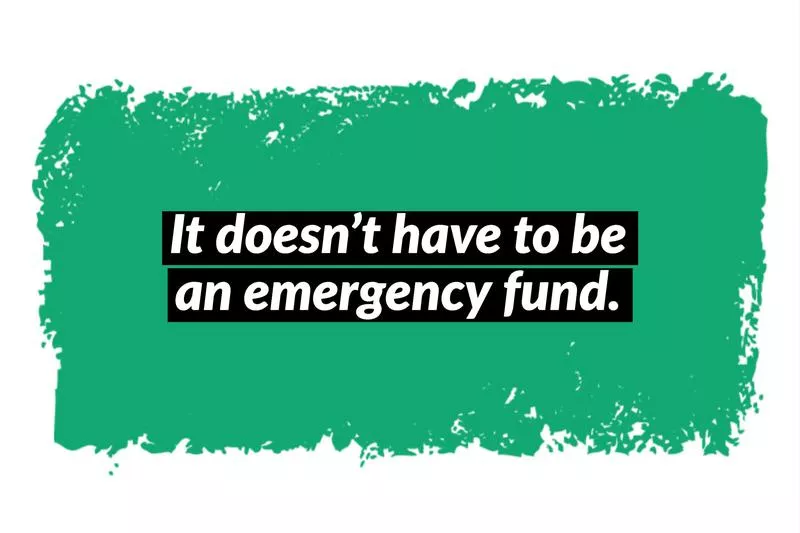
A common money rule is “save for a rainy day,” but it doesn’t have to be an emergency fund. “Of course, there’s nothing wrong with saving money,” said financial therapist Adamaris Mendoza. “But I would caution you on the intention you set when you create the account.”
Mendoza suggests calling it a “fun fund” and giving yourself permission to use some of the money for vacations or fun experiences, so that you’re not thinking “emergency” or “bad things” when you’re saving the money.
Review Your Expenditure Regularly
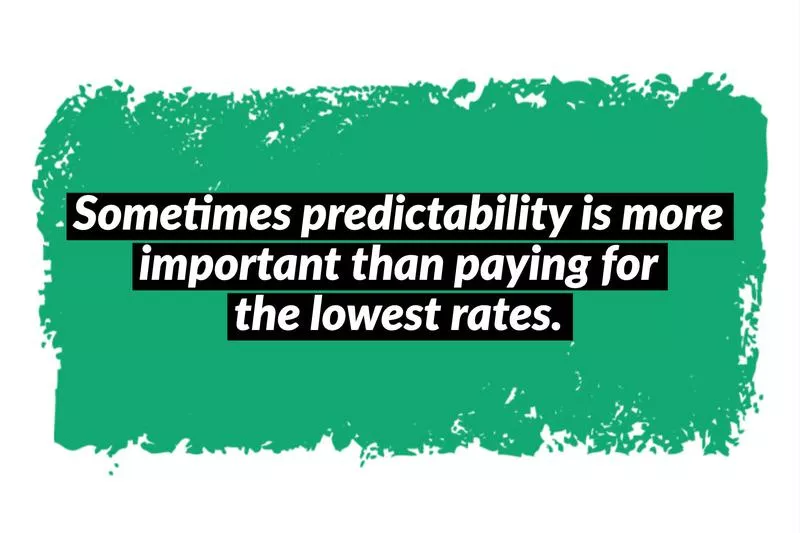
It’s impossible to have healthy money habits if you don’t budget — it’s the only way to keep track of money coming in and money going out. According to energy industry analyst Matthias Alleckna, the key to saving money is predictability. “The more predictable your budget is, the more you will be able to save and plan your budget in the long term,” he said.
So whether it comes to your internet, cable, electricity or heating bills, cost certainty is key. “You get less vulnerable to market changes and price increases when you secure fixed-rate plans,” Alleckna said. “Once you know what to expect from your bills at the end of every month, you guarantee a more financially secure life. Sometimes predictability is even more important than paying for the lowest rates in the market as you will be able to know what to expect from your expenditures and create more secure long-term money goals.”
Alleckna recommends reviewing your expenditures and your service providers on a regular basis. “Switching providers can be quite bureaucratic and dull,” he said. “But it’s worth researching the market from time to time to make sure you’re paying for the most advantageous services available. After years and years of contract with a company, you will probably notice you’re missing some good deals out there. Some people even negotiate with their current providers and let them know they found better plans in the market.”
Avoid Payday Loans at All Costs
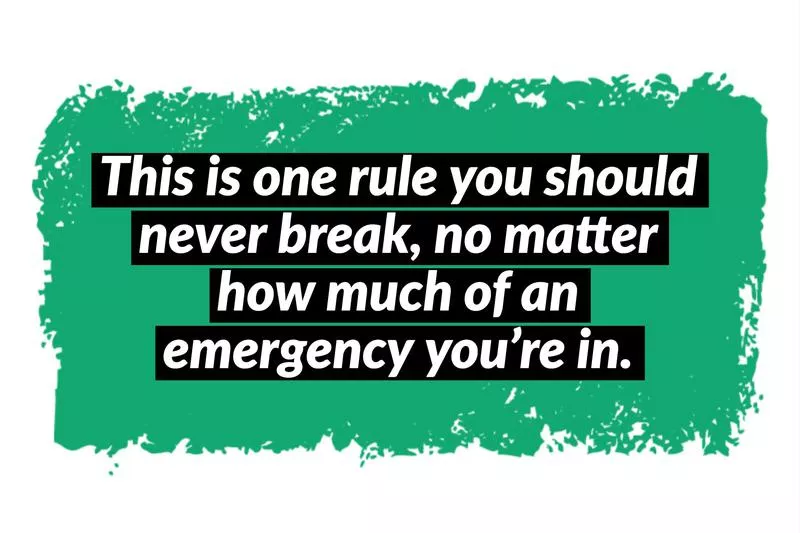
Payday loans, rent-a-centers and other high-interest loan products are never sensible financial choices. And this is one rule you should never break, no matter how much of an emergency you’re in.
Payday loans (also called cash advances) are typically small loans of $500 or less, and they’re fairly easy to get. The problem is that they’re very expensive: the interest can be as high as 400 percent. (By comparison, the average credit card APR is 21.19 percent at the time of publication.)
Safer options when you need to get your hands on some money quickly are to max out your credit card (but be sure to pay off your balance in full as soon as you can) or borrow from your retirement account, if you’re eligible and can do so without having to pay taxes or a penalty.
Get Multiple Quotes for Everything
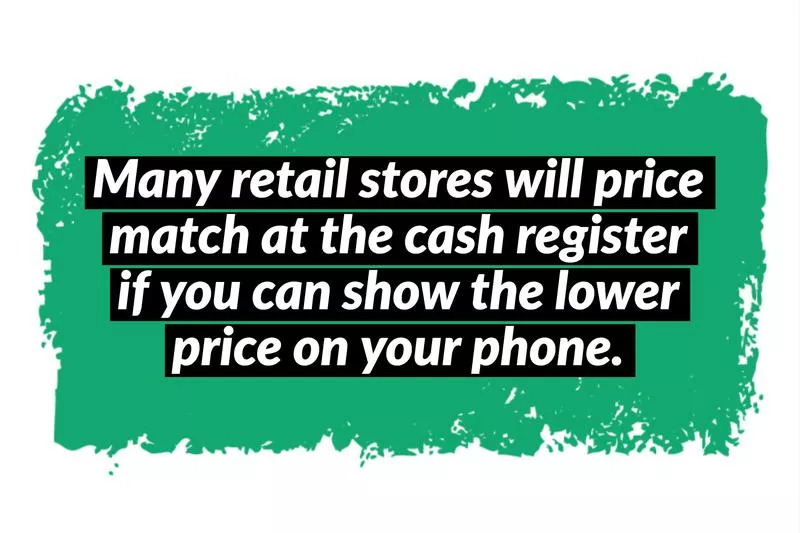
When you get into the habit of getting multiple quotes for everything, the savings really add up — whether it’s price-matching a LEGO set for your kid’s birthday on Amazon or getting quotes from a range of contractors for your home renovations.
“Checking multiple websites or calling for bids saves you a ton of money almost every time,” said Ponzar. “Many retail stores will even price match at the cash register if you can show the lower price on your phone.”
Use Tech to Stay Organized
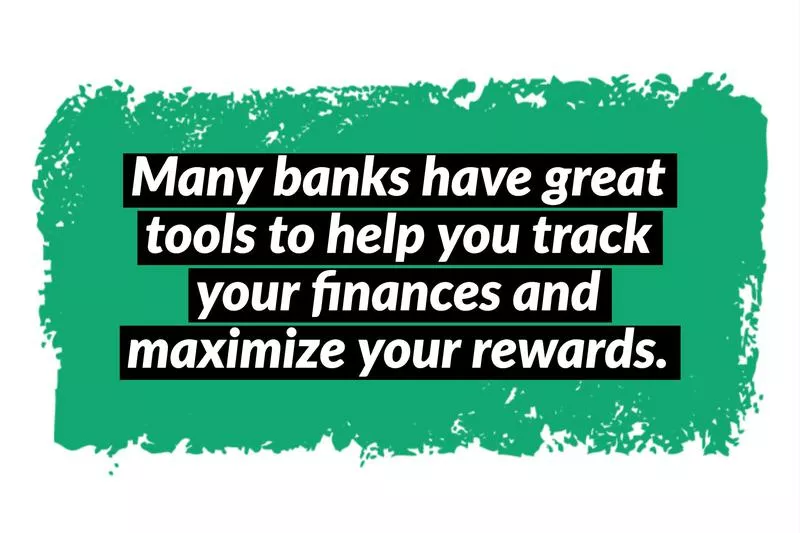
All banks offer online and mobile banking nowadays, and many of them have great tools to help you track your finances and maximize your rewards. For example, the Bank of America My Rewards tool is a single, comprehensive dashboard that tracks all the rewards, deals and benefits you earn throughout the year across multiple banking rewards programs.
If you’re not currently enrolled in a banking rewards program, contact your bank to see if you qualify. For example, Capital One’s Purchase Erasure program lets customers accrue points towards “erasing” already purchased travel. One simply makes the purchase with one’s credit card or mobile phone, and then submits the purchase for (within 90 days of purchase) a refund.
Know What Your Health Insurance Covers
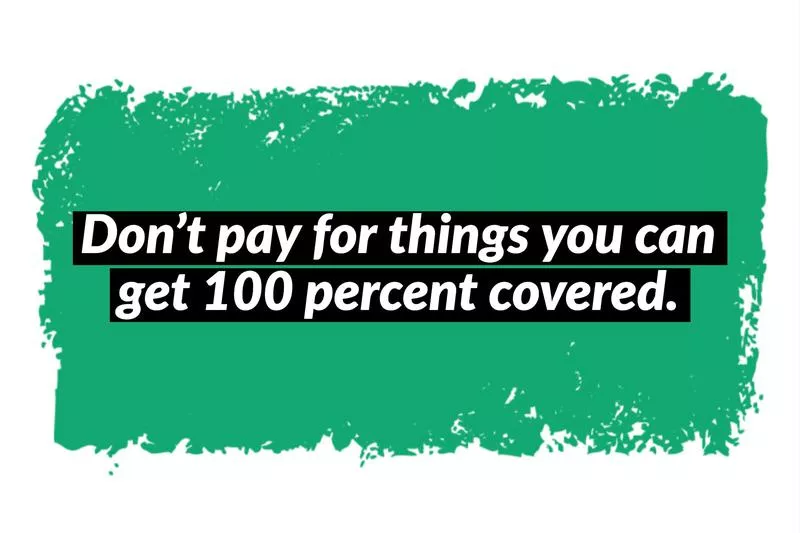
Health care is expensive, so make sure you know exactly what you’re paying for. “No matter how pricey that premium is, it’s going to be cheaper than a big hospital bill in the event something happens,” said Ponzar. “At the same time, don’t pay for things you can get 100 percent covered, like birth control and flu shots.”
According to Policygenius’s annual health care survey, only 22 percent of Americans could name the “essential health benefits” Obamacare plans must cover.
Keep it Simple
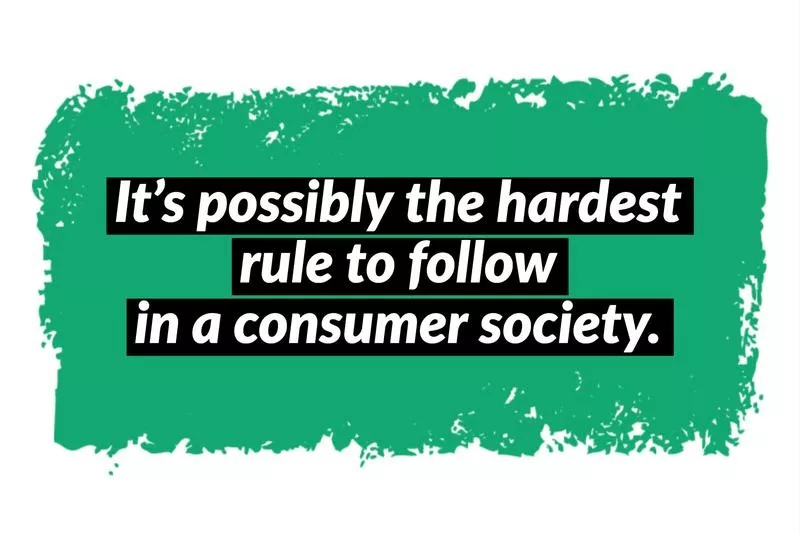
The easiest money rule to remember is possibly one of the hardest to follow in a consumer society: keep it simple. Old spending habits can be difficult to break, but think of it as a work in progress and you won’t feel too overwhelmed.
“Live simply and avoid recurring costs whenever possible, such as cable, streaming services, gym, expensive mobile phone, etc.,” Ponzar said. “Keep your dining and entertainment expenses low. Pack your lunch every day and make your meals at home. Restaurants, bars, movies, concerts, sporting events and so on can really add up.”